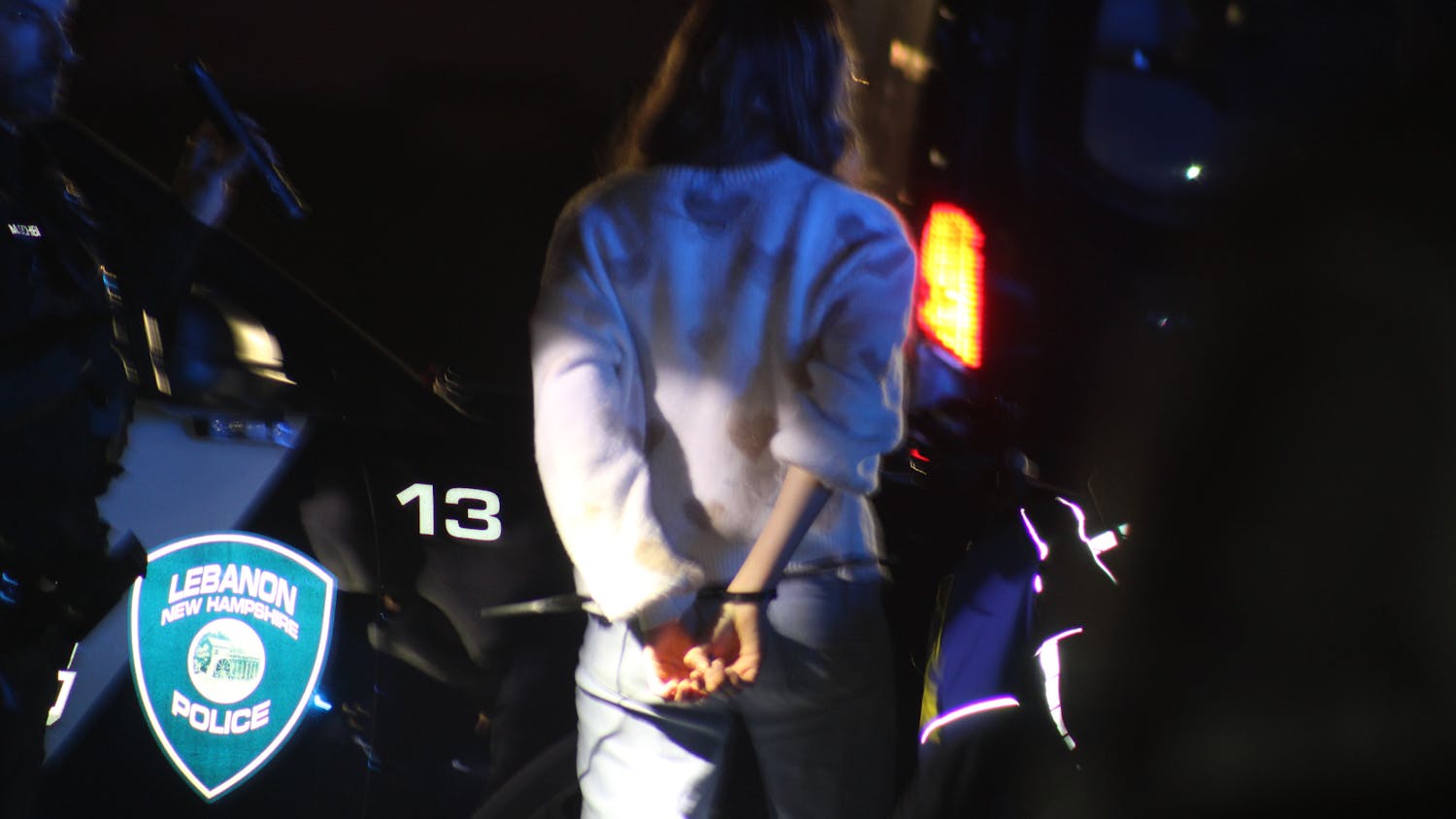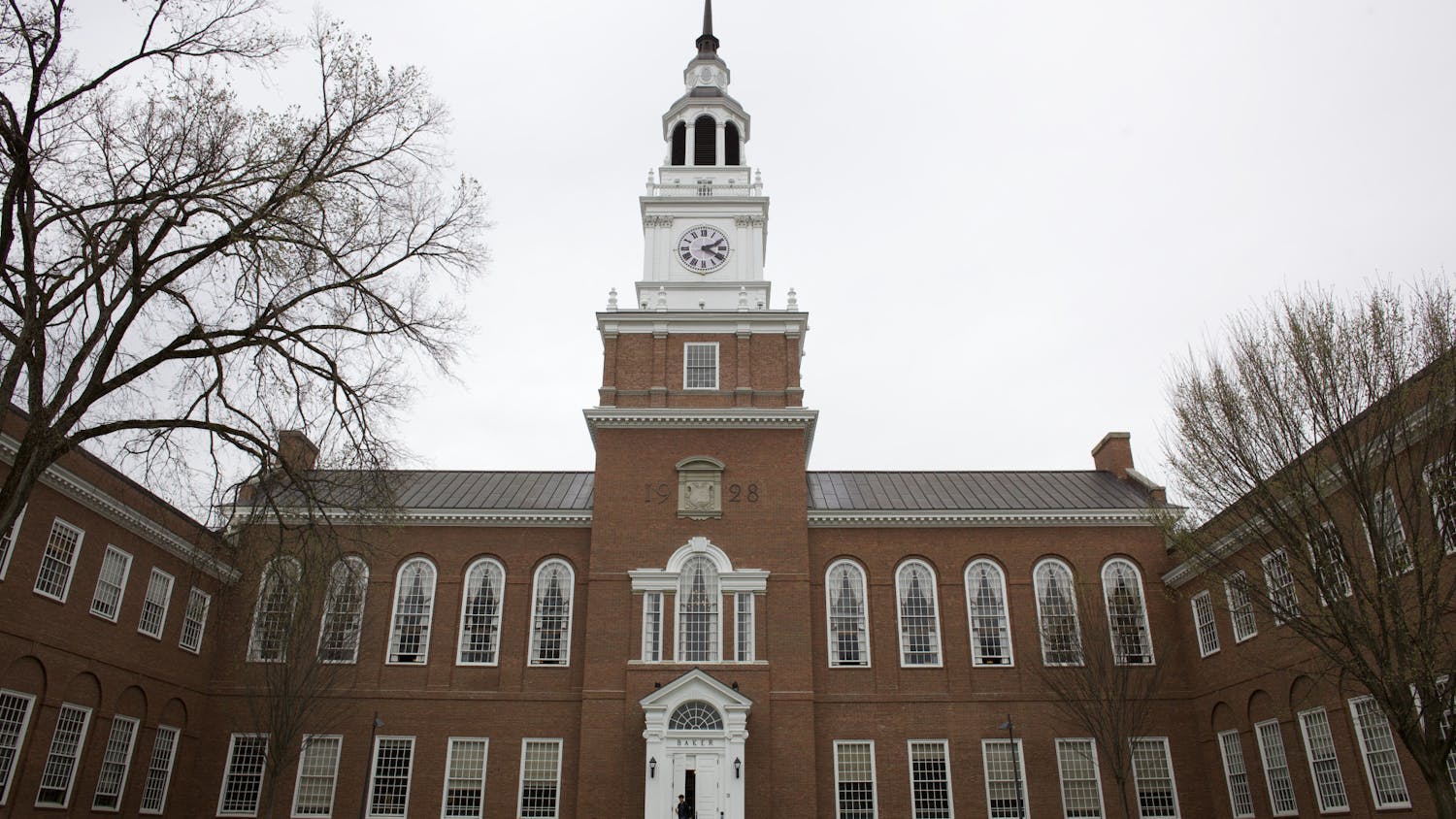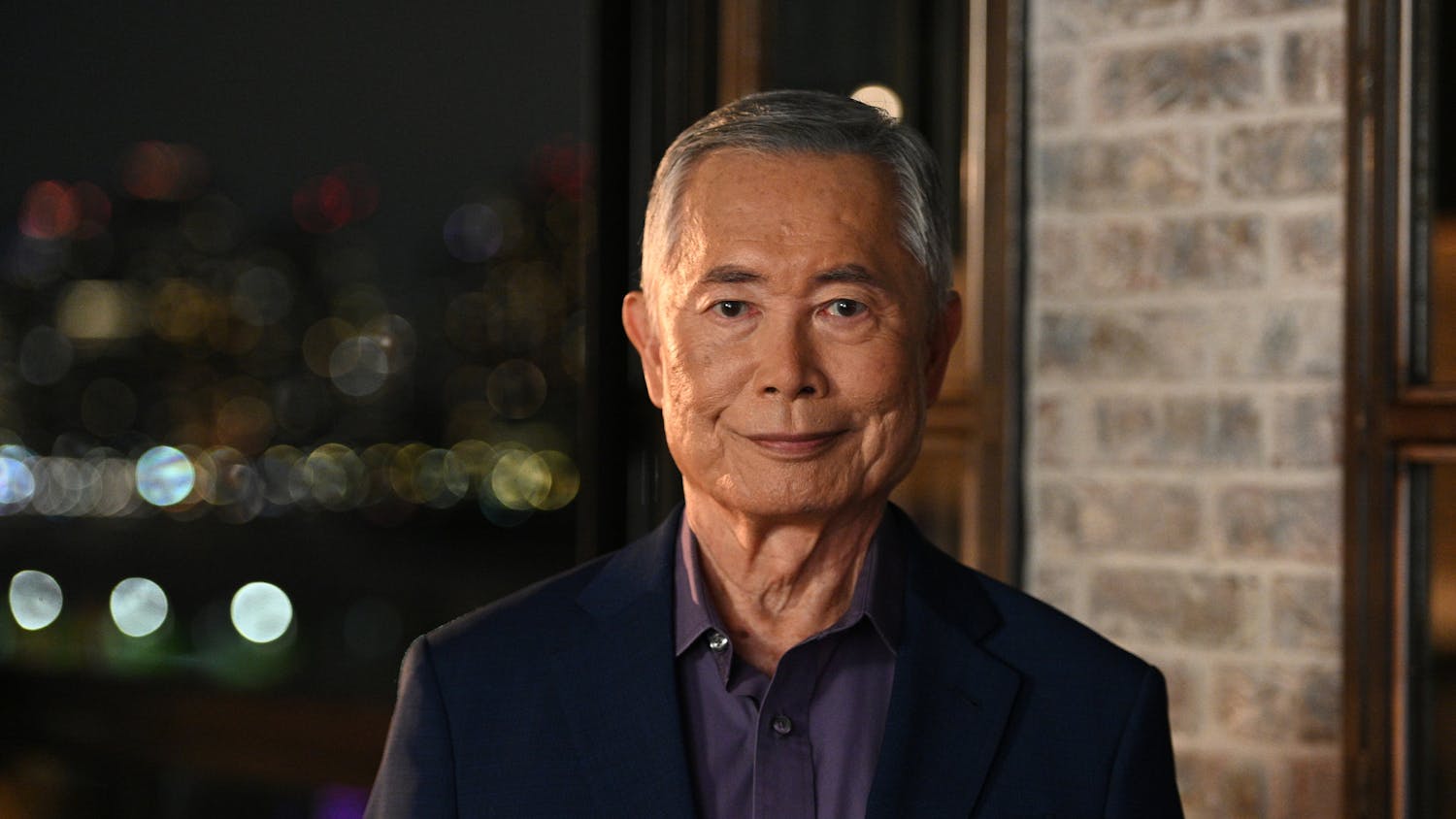Government Professor Roger Masters and Dinesh D'Souza '83 recently challenged each other to a public debate to be held at the College on Nov. 5.
Masters, a well-known political philosopher, was scheduled to debate D'Souza at the College last spring. D'Souza is the author of the recently-released controversial book, "The End of Racism," and a former editor in chief of The Dartmouth Review, an off-campus conservative weekly.
In a letter to The Dartmouth printed yesterday, Masters said he accepted a decision to debate D'Souza last spring, but said D'Souza backed out at the last minute due to a lack of available funds to pay for his visit.
"I found it difficult to believe that Mr. D'Souza would not speak at his alma mater without a large sum of money," Masters wrote. "I found it even harder to believe that Mr. D'Souza was unwilling to engage in open dialogue with a member of the Dartmouth faculty."
However, in a telephone interview last night from Washington, D.C., D'Souza said he has "been trying to debate [Masters] for years but [Masters] has always ducked out."
D'Souza said he will "definitely take up the challenge of debating Masters."
When asked about his decision not to come to Hanover last spring, D'Souza said the College has "plenty of money to pay other left wing speakers."
"I am glad I am debating Masters and not [College President] Jim Freedman because that would be like one-hand clapping," D'Souza said. "Masters is definitely going to be more of a challenge."
In his letter, Masters formally challenged D'Souza to a public debate "to set the record straight."
The topic of the debate will be mutually agreed-upon before the event, according to both parties.
In his letter, Masters suggested two topics for the debate: "Resolved: Liberal Education is Alive and Well At Dartmouth" or "Resolved: Public Policy Can and Should Address the Environmental Causes of Racial Differences in Educational Attainment."
D'Souza said he wants to develop a "proper resolution or topic for the debate. Masters has proposed topics that serve his own purpose."
Some topics that D'Souza suggested include "Is racism the Problem Faced by Blacks?" and "The Politics of Race and Sex on Campus."
D'Souza said these topics are "neutral and broad enough for a lively debate."
Kishan Putta '96, a member of the Conservative Union At Dartmouth, said he approached Masters with the idea for a debate and then personally spoke to D'Souza about the event.
"Masters was the first professor D'Souza wanted to debate at the College because of [Masters'] widely known intellect," Putta said.
Masters said he accepted the challenge because "in academic surroundings, it is good to have dialogue and debate about controversial issues."
D'Souza said Masters is an "eloquent and learned opponent." He said he looks forward to a lively debate, adding that he thinks of Masters as a "demagogue." He said he was using the term in a complimentary manner.
D'Souza said he is confident he "can win on substance."
"Although Masters is eloquent, many of his ideas are half-baked and have developed in the insulated atmosphere of Hanover," D'Souza said. He said he remembers a speech Masters previously gave at Dartmouth as "absolutely deranged."
Masters said he did not was not going to try to "win" the debate with D'Souza, saying the idea of a winning a debate is "silly."
He said the open exchange of ideas was more important than the two debaters "beating each other."
A prior relationship
D'Souza works at the American Enterprise Institute in Washington, D.C. Since his graduation from Dartmouth, D'Souza has earned a national reputation for his outspoken opinions on race relations and his controversial views about liberal education.
In addition to his recent book, D'Souza is the author of "Illiberal Education." He commonly debates prominent professors concerning the idea of a liberal education.
Masters said D'Souza "attacks the notion of a liberal education in a manner that I find illiberal."
Masters said he does not claim to be a "liberal. Many liberals appear to be foolish because they don't defend their principles."
But Masters said he "won't allow the character of the institution [of liberalism] to be attacked."
Masters said he held many discussions with D'Souza during the D'Souza's time at Dartmouth and following D'Souza's graduation.
He said he "agrees with Dinesh about many things" and he has had "good relations" with former editors of The Review.
He said he views the debate as a way to defend Dartmouth.
When "someone with a national reputation attacks this institution, it is fundamentally damaging," Masters said.
Masters said he has some "fundamental questions about the way D'Souza views Western tradition" and said D'Souza has "no sense of the complexity of certain elements of the Western tradition."
Masters' field of expertise is based on the Western tradition, which involves studying such thinkers as Socrates and Aristotle.
Masters said he is not persuaded that D'Souza's views on "modern universities or modern societies are analytically correct or in the interest of a liberal institution."
D'Souza has never taken a course taught by Masters.
Masters said he also disagrees with D'Souza's views on science. Masters said D'Souza has "little understanding of the role of science in American universities" and D'Souza "doesn't understand that science is the foundation of economic success."
Masters said the way D'Souza is trying to "substitute one type of political correctness for another is not healthy."
"I am politically incorrect," Masters said. "I always have and I always will be. Philosophers always are."
He sarcastically said the measure of a successful scholar is if he is "completely misunderstood by every political party."
D'Souza said he knew Masters "cordially as an undergrad" and that Masters was "one of the brighter lights on the Dartmouth faculty." However, D'Souza quickly added "[that compliment] doesn't say much."
D'Souza said his statements on "race sometimes irritate people," but he has yet "to hear a cogent response to his statements."
He said there is an "unwillingness to confront race in this society" and knows his statements are "outrageous to existing orthodoxies."
The Dartmouth Speakers Union will organize the debate, D'Souza said.



